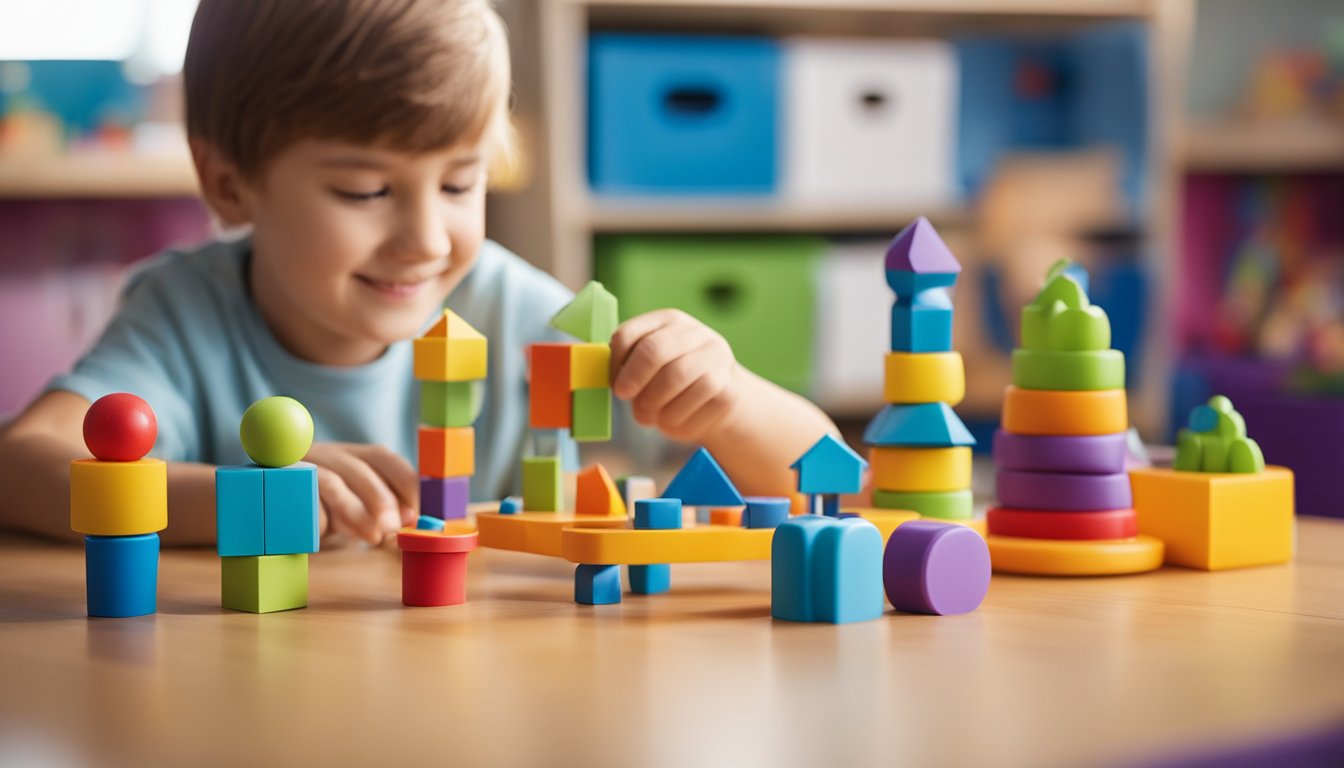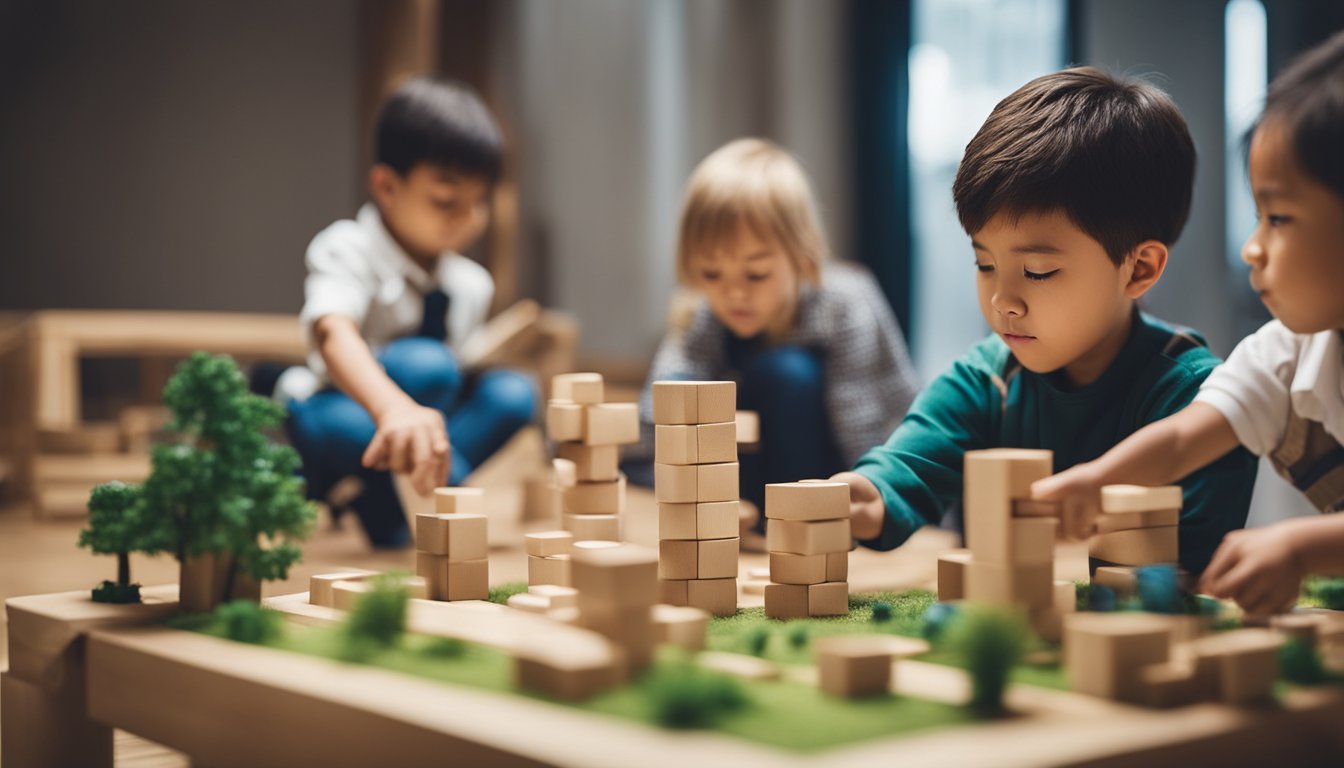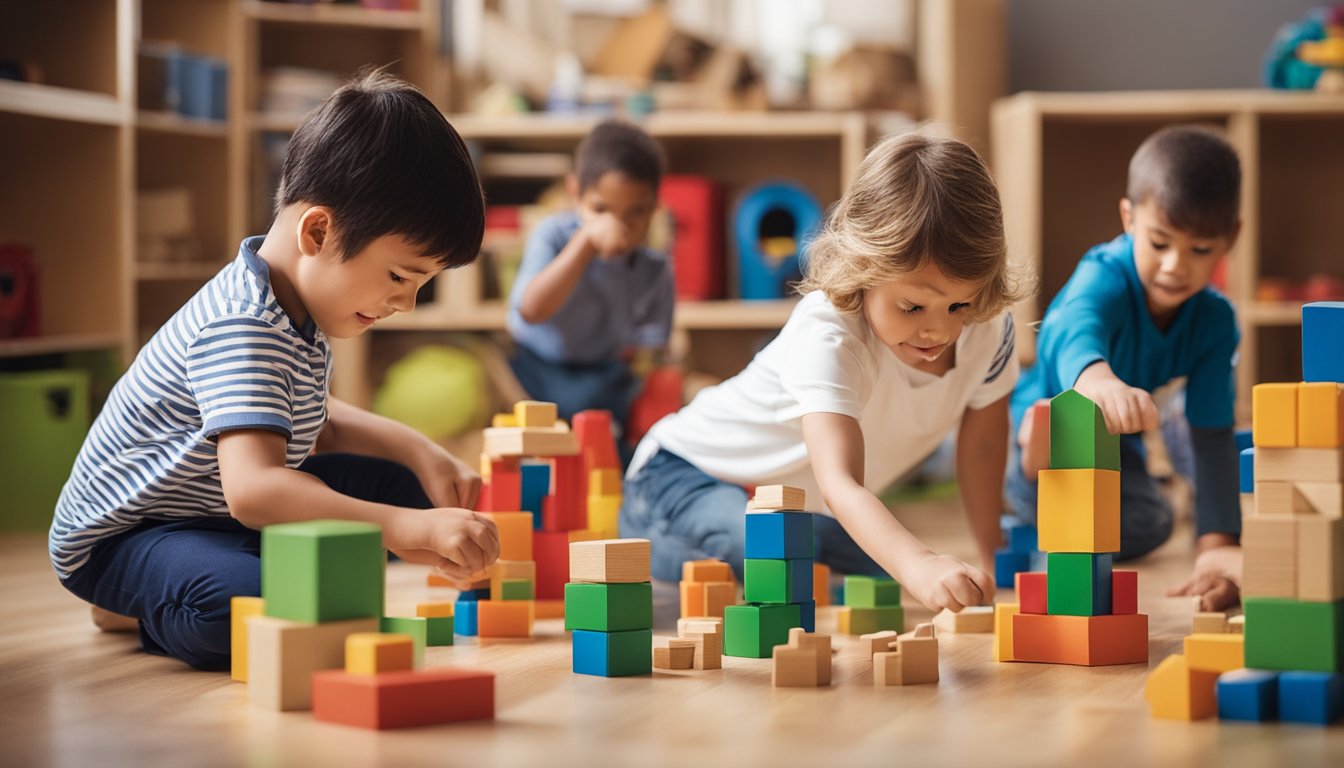Late updated: 07 Jan 2025 12:01
Written by:
Exploring Play-Based Learning Advantages for Children: Enhancing Development and Creativity
Play-based learning is a powerful educational approach in early childhood education that uses play as a tool for exploration and skill development. By engaging children in imaginative and hands-on activities, this method fosters cognitive growth, emotional resilience, and social skills. It equips children with the tools they need for future success by nurturing their natural curiosity and creativity.

As educators and parents, integrating play-based learning into our educational strategy can be pivotal. We create environments brimming with materials and opportunities for discovery and problem-solving. Children don't just have fun; they engage in meaningful learning that builds a solid foundation for emotional and intellectual development.
The significance of play-based learning cannot be overstated. It not only aids in academic achievements but also enhances emotional and social competence. Through structured yet flexible activities, children thrive, leading to a lifelong love for learning.
Key Takeaways
- Play-based learning is crucial in early childhood education.
- It enhances emotional, cognitive, and social development.
- Creating rich play environments supports effective learning.
Foundations of Play-Based Learning in Childhood Development
Play-based learning offers multiple benefits, promoting cognitive, physical, and emotional growth for children. It nurtures essential skills, including problem-solving and creativity, laying the groundwork for future learning.
Cognitive and Language Advancements
We recognise that play-based learning significantly bolsters a child's cognitive and language abilities. Through play, children develop vital problem-solving skills and engage in critical thinking. Activities like imaginative play and dramatic play support this growth by providing scenarios that challenge them to think on their feet.
Additionally, play enhances language development as children naturally expand their vocabulary and literacy skills. Interacting with peers during play fosters communication skills, teaching children how to articulate thoughts and express ideas effectively, which sets a strong foundation for future learning.
Physical and Emotional Growth Through Play
Incorporating play in childhood development is essential for physical and emotional well-being. Through hands-on experiences, children develop motor skills essential for overall health and coordination. Fine motor skills improve as children manipulate objects, enhancing their dexterity and precision.
Furthermore, play encourages emotional growth by allowing children to explore their feelings. It aids in building resilience and self-regulation, letting children manage emotions constructively. Social interactions during playtime contribute to social emotional development, as children learn empathy and cooperation, forming emotional bonds with peers.
Fostering Creativity, Imagination, and Curiosity
Play-based learning is a powerful vehicle for nurturing creativity and imagination. Through sensory play and creative activities, children exercise their imagination, exploring different perspectives and innovative solutions. Imaginative play and story-based activities foster curiosity, encouraging children to ask questions and explore concepts beyond immediate understanding.
Our play-centric approach also promotes intrinsic motivation, inspiring children to learn for the sheer joy of discovery. By providing a safe, playful environment, we enable children to take risks, experiment, and develop their own ideas, allowing their inherent curiosity to thrive.
Integrating Play-Based Learning into Educational Strategy

Integrating play-based learning into educational strategies involves aligning pedagogical goals with the natural inclinations of children. This approach fosters a passion for learning by incorporating playful elements that are crucial for developing academic and social skills.
Curricular Integration and Educational Objectives
Incorporating play into the curriculum requires an intentional alignment with educational objectives. Playtime becomes a dynamic platform for cultivating academic skills such as math, numeracy, and literacy. Activities like board games can enhance spatial awareness and promote problem-solving.
Exploratory play should be embedded into lessons to stimulate curiosity and self-directed exploration. This encourages children to engage with content meaningfully and fosters lifelong learning. The Reggio Emilia Approach is an exemplary model, focusing on empowerment and the role of kiddos as co-constructors of knowledge. By integrating free play and structured activities, we achieve a balance that benefits both educators and students.
The Role of Educators and the Learning Environment
Educators play a critical role in nurturing a learning environment conducive to the integration of play. Creating an atmosphere of collaboration and cooperation is essential. By participating in children's play, teachers can guide social skills development and language skills acquisition, fostering communication and empathy among peers.
Flexible spaces that allow for both structured and unstructured play are vital. They enable a range of activities that support different aspects of development. The learning space should encourage creativity, allowing learners to express themselves freely. Educators must adapt their roles to be facilitators of exploration, ensuring that each child feels safe and inspired to pursue knowledge.
Frequently Asked Questions

We explore the advantages of play-based learning in early childhood education and primary schools. Our focus is on cognitive, emotional, and social development, as well as how these methods compare to traditional education approaches.
What are the primary benefits of play-based education in early childhood?
Play-based education sparks creativity and critical thinking in young children. It nurtures curiosity and supports cognitive growth by allowing children to explore their surroundings through active engagement. This approach also fosters social skills through peer interaction.
How does play-based learning impact children's cognitive development?
Children enhance their problem-solving abilities and cognitive skills through play. Engaging in diverse activities helps them process and understand new information effectively. This sets a strong foundation for future academic and personal success.
What are the significant advantages of play-based education in primary schools?
In primary schools, play-based education promotes independent thinking and collaboration. It allows children to apply their learning to real-world contexts, making education more relevant and engaging. This method cultivates lifelong learning habits.
Can you explain how play-based learning supports emotional and social development in children?
Play-based learning builds emotional resilience, self-regulation, and empathy. By interacting with peers and teachers, children develop the ability to communicate effectively and resolve conflicts. This nurturing environment supports the development of a well-rounded individual.
How does play-based learning compare with traditional education methods in terms of child development outcomes?
Compared to traditional methods, play-based learning often results in better retention and understanding. It encourages active participation and meaningful interaction, making learning more dynamic. Traditional methods might lack the flexibility that this approach provides.
What role does play fulfil in a child’s natural exploratory behaviour and learning?
Play is fundamental in a child's explorative behaviour, acting as a learning tool. Through play, children experiment, hypothesise, and discover, which are essential processes in learning. It supports curiosity and the desire to learn, fostering intrinsic motivation.
